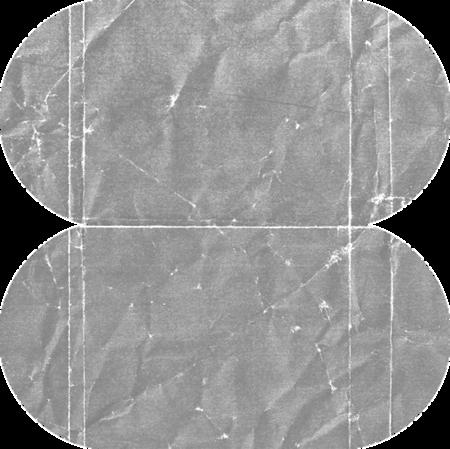Outside my bubble the manifesto ofa curious and confused writer
Society & Identity





Lisa Evans
What writing is
Why I write
My aim
My inspiration
What I write
How I will improve
How I will write
Bibliography
For me, writing is a spontaneous, organic, and intuitive undertaking. I write as if I am brewing a potion, pulling random ingredients from a vast array of jars and bottles, stirring them together, allowing them to brew, and seeing what develops.
Sometimes I find writing an arduous task, as if I am stumbling through fog. I need to concentrate and block out any distractions. At first, I see only vague shapes and hazy outlines. And then, at last, an idea comes into sight, blurry in the distance, becoming clearer as it nears. what writing is
"A good novelist is a good observer"
Chris Cleave
I write to understand people; myself included. Writing allows me the space to examine thoughts, feelings, conversations, and actions. Whether they are real and fresh in my memory, vague, half-remembered things, or dreams and imaginings; writing makes them clearer. It enables me to reflect, and as Bandura observes,
‘People not only gain understanding through reflection, they evaluate and alter their own thinking’ (1986: 21).
Writing provides me with the distance to view things from different perspectives. It allows me to pause, step back, see the bigger picture, or zoom in and narrow my focus to the details. This view is supported by Adsit and Byrd, who highlight the importance of writers understanding the position they are writing from,
‘If I don’t pause to identify how my positionality informs my understanding of the world, I may make assumptions that are unfair, faulty, or exclusionary’ (2019: 167).
I want to keep growing and learning in my writing. I will not allow the strive for perfection to hold me back. Mistakes are part of learning, and I will allow myself to fail. I can rewrite a poorly written piece, pull it apart, rearrange, and sieve it to find the kernels of ideas. I can do nothing with the work that I do not write. The writing I lack the courage to commit to paper is useless to me. I will take the thoughts, ideas, feelings, and conversations that whirl in my brain, cast them onto the page and continue to do my best to make sense of them.
Shamsie (quoted in Kunzru et al. 2016) writes,
‘don’t set boundaries around your imagination. But don’t be lazy or presumptuous in
your
writing either. Not
for
reasons of ‘political correctness’, but for reasons of good fiction.’
Adopting a similar opinion, I want to write good fiction; I am prepared to write bad fiction first, and edit, rewrite, research, polish, and improve it until it becomes good.
People inspire me to do my best writing. My desire to know and understand them spurs me onwards. My purpose for writing is to understand the world and my place in it. By understanding my characters, I can better understand life. Writing can help me learn where I fit and make space for myself where I do not.




My writing explores the everyday relationships my characters have with themselves and those around them. It is a means for me to follow my interest in trying to understand people. The themes of respect, interest, exploration, and empathy are key to my work.




I will learn things unknown to me by broadening the sphere I interact within. Stepping outside my bubble, and embracing new ideas, unknown places, and unfamiliar people will give me a clearer understanding of my positionality, helping me write with respect, empathy, curiosity, and awareness. As Kunzru (quoted in Kunzru et al. 2016) points out,
'Good writers [...] do not presume. They respect people [...] by becoming involved with them. They research. They engage in reciprocal relationships.'
I will travel and read widely and listen actively. Keeping my eyes, ears, and mind open to everything that I encounter. As Cleave (quoted in Kunzru et al. 2016) maintains, 'A good novelist is a good observer.'


This is consistent with Forna (quoted in Kunzru et al. 2016) who reminds us that,
'writing is about imagining how others think and feel and how that informs their behaviour; it is about offering a different way of seeing and in so doing it creates empathy. [..] Don't write what you know, write what you want to understand.'


I will write honestly; I will not contrive to fit an aesthetic, niche, or popular belief in my writing. As Emerson suggests, ‘Insist on yourself; never imitate. Your own gift you can present every moment with the cumulative force of a whole life's cultivation’ (2022: 56). I will apply this idea by finding my own way to write the stories that I feel need telling.
ADSIT, Janelle and Renée M BYRD. 2019. ‘Positionality’. In Writing Intersectional Identities. United Kingdom: Bloomsbury Publishing Plc.
BANDURA, Albert. 1986. Social Foundations of Thought and Action: A Social Cognitive Theory. Prentice Hall.
EMERSON, Ralph Waldo. 2022. ‘SELF-RELIANCE’. In Essays. United States: Open Road Integrated Media, Inc.
KUNZRU, Hari, Kamila SHAMSIE, Aminatta FORNA, Chris CLEAVE and OTHERS. 2016. ‘Whose Life Is It Anyway? Novelists Have Their Say on Cultural Appropriation’. The Guardian, 1 Oct [online]. Available at: https://www.theguardian.com/books/2016/oct/01 /novelists-cultural-appropriation-literaturelionel-shriver [accessed 28 Jun 2024].
Created on 30th June 2024
by Lisa Evans